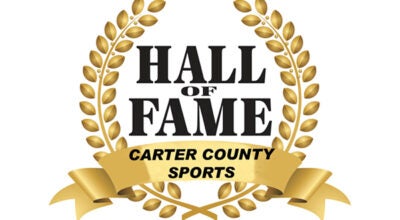Column: Will the new coronavirus kill spitting in sports?
Published 1:48 pm Monday, May 11, 2020
|
Getting your Trinity Audio player ready...
|
BY JIM LITKE
AP SPORTS COLUMNIST
We come not to praise the loogie, but to bury it.
Already banned on sidewalks, outlawed indoors and pooh-poohed by polite society, that gob of saliva and Lord-knows-what-else is done mucking up sports.
In the wake of the new coronavirus, teams are revoking the germ-landing privileges that turned dugouts, benches, boxing rings, and even grass fields into potential biohazard sites.
No sharing towels, hats, bats, gloves, or water bottles. Which could mean the golden era of spitting, slobbering, gleaking, glanding, hawking, hocking, venoming, and expectorating is about to dry up. Or not.
“About time they did something,” said Bobby Valentine, who played and managed in the major leagues for more than 40 years, including two stints in the Japanese Pacific League.
“I was over there for seven years and I could probably count on one hand how many times I saw a ballplayer spit. Heck,” he added, “they don’t even chew gum.”
But a moment later, Valentine remembers a photo tucked in a drawer somewhere in his Stamford, Connecticut, home. It reminds him why the loogie will not disappear without a fight.
“It’s a picture of me after a game from 30 years ago, back when I was managing the Rangers and behind me, there’s this elongated view of the dugout. There must have been 200 of those green Gatorade cups and all this other … let’s just say gunk, laying around.
“And I used to wonder even then,” Valentine mused, “why guys couldn’t clean up after themselves.”
The answer may be as old — and as American — as the sport itself.
Baseball began as a working man’s game on sandlots and dusty diamonds, and more than a few players struggling with “cotton mouth” turned to chewing tobacco (and later gum and sunflower seeds) to work up some moisture. It became an institution in no time flat.
Pitchers figured out that loading a glob onto one side of the ball made it dip like crazy. Fielders pounded spit into the pocket of stiff leather gloves to soften them up and hitters rubbed it on their hands or lacquered up bat handles to improve their grips, at least temporarily. But it had psychological value, too.
Spitting helped some soothe jangling nerves, show contempt or machismo, or just mark their territory like dogs do. It was only a problem when an opponent got in the way of its gravity.
It isn’t just baseball, of course. Rough-and-tumble sports like soccer and football embraced the practice at the beginnings of their games, too, and once grabbing a swig of water on the sidelines during a break became available, it practically elevated it into an art form. But don’t expect any new masterpieces to flow soon.
With Germany’s Bundesliga considering a return to play within week s, Michel D’Hooghe, the chairman of FIFA’s medical committee, is strongly advising against any soccer league restarting until the fall. But if they do, he wants even the most casual dribble on the pitch punished with a yellow card.
“It is unhygienic … I think we should have to avoid that at maximum,” D’Hooghe said. “The question is whether that will be possible.”
More genteel pursuits like tennis and golf have proved that it is, although both Tiger Woods and Sergio Garcia handed over hefty fines for leaving something besides sweat out on the course.
Basketball and hockey are stuck indoors, but only one of them said no to spitting. Puckheads defend hockey’s choice by arguing players who get a tooth knocked out during a game shouldn’t have to swallow a chiclet.
Fair enough. But if you’ve ever watched a game and seen how much blood, sweat, and tears they voluntarily share on the bench, it shouldn’t come as a surprise that the National Hockey League has been hit twice in recent years by outbreaks of mumps.
But that’s about to change. The coronavirus has pulled the rug out from underneath just about everything in sports, and better sanitation shouldn’t require a seismic cultural shift. Just rise at some ungodly hour and catch a Korean Baseball Organization game on ESPN.
The KBO is at the vanguard in the return of live sports. It checks players’ temperatures twice daily, requires umpires and trainers to wear masks and gloves, and banned spitting, handshakes, fist-bumps, high-fives, and perhaps most noticeably, a live audience.
That’s been replaced by banners picturing fans — also wearing masks — stretched across every row. In a spectacularly complicated nod to social distancing, the opening pitch was rolled to home plate by a youngster wearing a uniform inside a clear balloon made up to look like a baseball.
Dan Straily, an American-born pitcher with the Lotte Giants of the KBO, said the game lacked so much energy, it reminded him of “weekday games in Oakland.” Still, he had only one real complaint.
“I want someone to find me a game in history where baseball players did not spit on the field,” Straily told NPR.
Get used to it.





